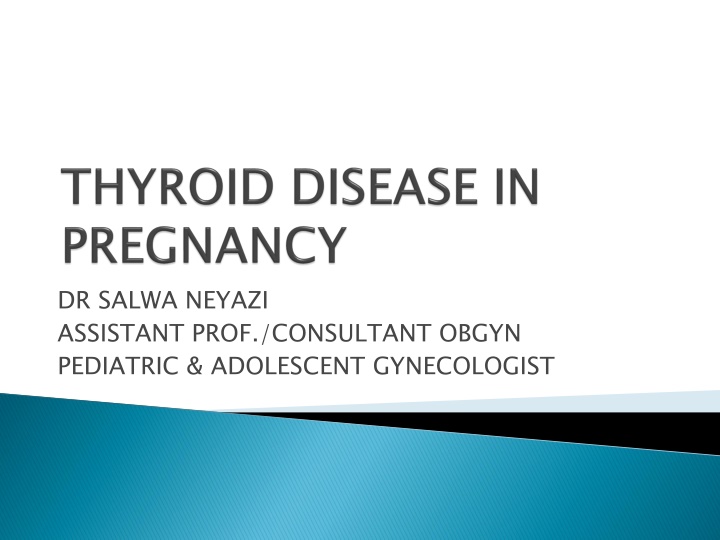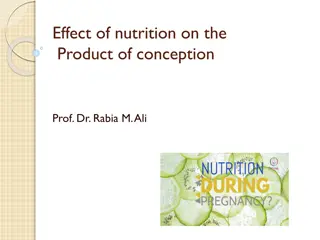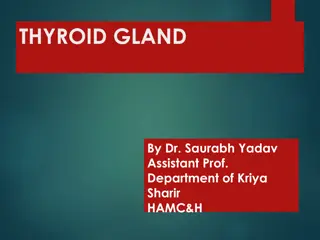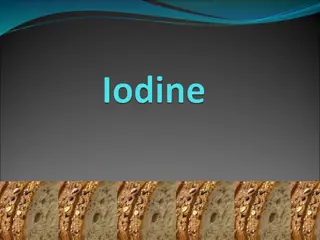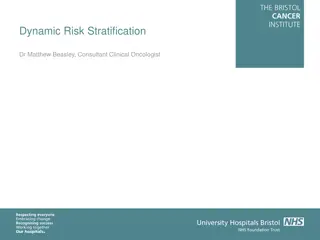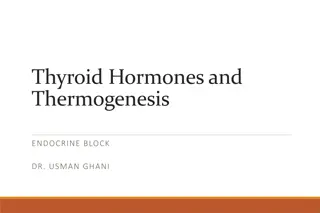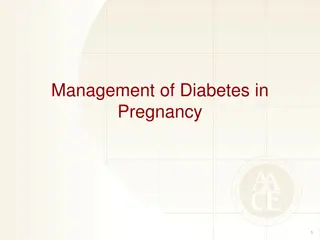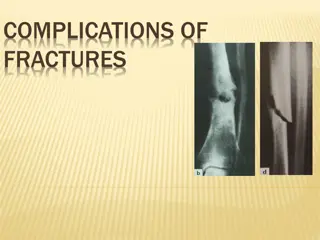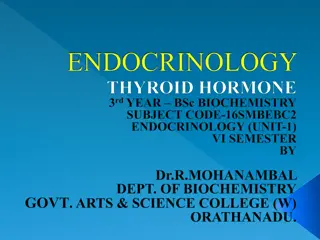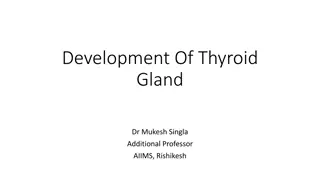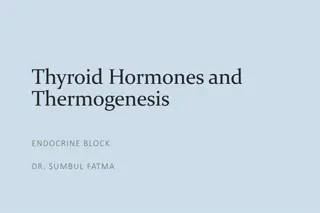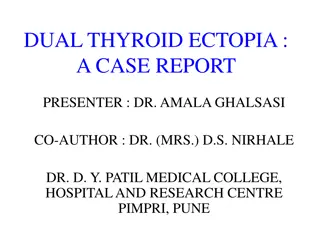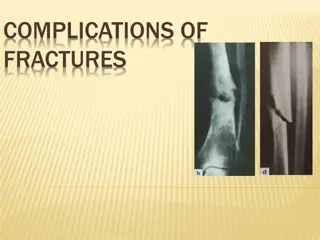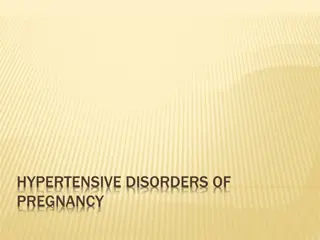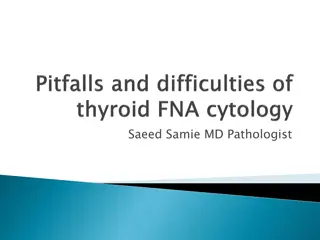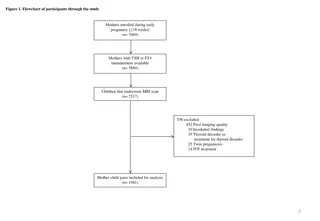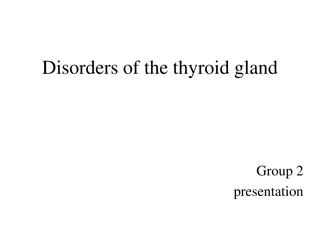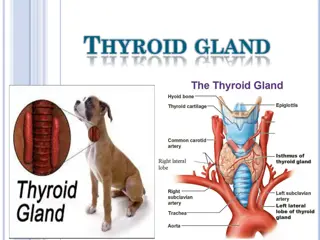Thyroid Function During Pregnancy: Clinical Manifestations and Complications
Changes in thyroid function during pregnancy can lead to clinical manifestations like nervousness, tachycardia, and weight loss. Complications such as abortions, preterm delivery, and thyroid storm can occur. Treatment involves maintaining FT4 levels within the high normal range with medications like propylthiouracil and methimazole. Radioactive iodine is contraindicated during pregnancy, and thyroidectomy may be necessary for women intolerant to drugs.
Download Presentation

Please find below an Image/Link to download the presentation.
The content on the website is provided AS IS for your information and personal use only. It may not be sold, licensed, or shared on other websites without obtaining consent from the author.If you encounter any issues during the download, it is possible that the publisher has removed the file from their server.
You are allowed to download the files provided on this website for personal or commercial use, subject to the condition that they are used lawfully. All files are the property of their respective owners.
The content on the website is provided AS IS for your information and personal use only. It may not be sold, licensed, or shared on other websites without obtaining consent from the author.
E N D
Presentation Transcript
DR SALWA NEYAZI ASSISTANT PROF./CONSULTANT OBGYN PEDIATRIC & ADOLESCENT GYNECOLOGIST
Changes in thyroid function during preg Clinical manifestation, complications and treatment of hyper and hypothyroidism Postpartum thyroiditis
Increase TBG (estrogen effect) HCG acts like TSH 10-120% of preg women will have subclinical hyperthyroididsm and 60% of women with hydatiform mole or chorioca Stimulation of TSH receptors Hyperemesis gravidarum may be associated with subclinical or mild hyper thyroidism TSH---N FT4---N TT4---INCREASED TT3---INCREASED
CLINICAL MANIFESTATIONS Nervousness Tachycardia Palpitation Wt loss Tremors Flushing Frequent bowel movement Excessive swetting Insomnia Graves disease---goiter, exophthalmos,peritibialmyxedema
Graves disease 90% Toxic nodular goiter Iatrogenic Iodine induced Subacute thyroiditis HCG mediated
Abortions and stillbirth PET Preterm delivery Low birth weight Placental abruption Cardiac arrhythmias Congestive heart failure Thyroid storm Hyperemesis gravidarum
Low TSH Elevated FT4
Aim: to maintain FT4 level at the high normal range using the lowest drug dose Radioactive Iodine is absolutely contraindicated in pregnancy Propylthyouracil 50 mg bid or less is recommended for the Rx If it fails consider methimazole Beta blockers given to control the symptoms Thyoidectomy may be required during preg for women who can not tolerate drugs or have allergy or agranulocytosis
TSH does not cross the placenta TSH (receptor stimulating) antibodies ---can cross the placenta ---resulting in hyperthyroidism of the fetus in 1-5% Manifestations of hyperthyroidism in the fetus: - tachycardia -goiter -advanced bone age -IUGR -cardiac failure /hydrops
CLINICAL MANIFESTATIONS: Fatigu Constipation Intolerance to cold Dry skin Muscle cramps Hair loss Wt gain Myxedema Carpal tunnel S. Prolonged relaxation of deep tendon refelxes
Hashimoto disease Iodine defficiency Subacute thyroiditis Thyoidectomy Radioactive Iodine Rx
Abortions PET Preterm delivery IUGR Placental abruption PPH
Levo-thyroxin TSH should be checked and level adjusted
Congenital cretinism 1:4000 ---IUGR, MR, floppy baby, macroglossia, neuropsychological deficit Mental retardation IUGR Screening for hypothyroidism should be done for all neonates
It occurs in 5-10% of women in the first year after child birth There is increasing serum levels of autoantibodies Phase 1 thyrotoxicosis 1-4 months after delivery may return to euthyroid state or Phase 2 transient or permanent hypothyroidism 4-8 months post delivery Diagnosis ---abnormal TFT -antimicrosomal antibodies or -ATP (antithyroid peroxidase ) antibodiess
Fine needle aspiration biopsy Benign nodules followed Malignant surgery in the 2ndtrimester Thyroidradioactive scanning is contraindicated
